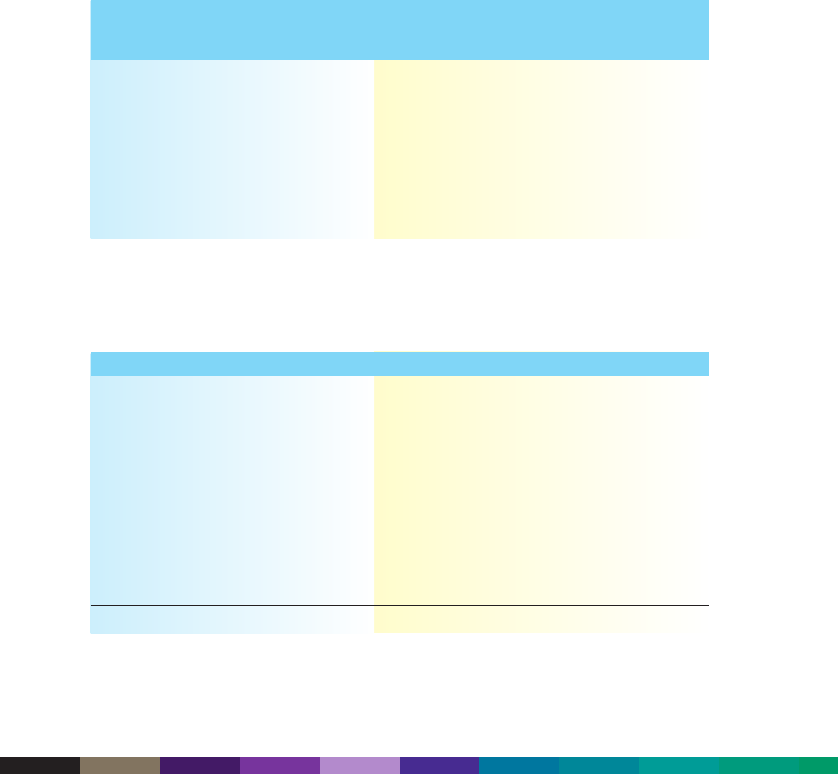
What truly distinguishes digital printing from traditional printing is the ability to print
every page differently. This is something that offset presses – including DI presses – can-
not do. Offset presses can only print exact replicas of the same sheet, again and again.
The digital colour presses that dominate the market now – and for the foreseeable
future – are all toner based. They utilise electrophotography, either with liquid toners
(Indigo), or dry toners (IBM, Kodak-Heidelberg, MAN Roland, Xeikon and Xerox).
The market for colour print can be split into segments defined by run length and
specific applications. The suitability of different printing technologies to these
segments is as follows:
Digital Direct Conventional
colour imaging (or DI) offset
Segment/application printing offset presses printing
One-off and one-at-a-time publications Yes No No
Customised/personalised documents Yes No No
Vert short runs (<500) Yes No No
Short runs (501-2,000) Yes Yes No
Moderate runs (2,001-5,000) No Yes Yes
Long runs (5,001-50,000) No No Yes
Very long runs (50,001+) No No Yes
With the many benefits of digital colour printing (described later in this section), we
are seeing a strong swing toward shorter runs. The table below shows that in 1998, 28%
of all print volume in the US was short run, but in less than 20 years it is expected to
account for almost half of all print volume.
1998 2000 2010 2020
Ultra Short Run (1) 8% 10% 13% 14%
Very Short Run (2-500) 10% 13% 15% 16%
Short Run (501-2,000) 10% 13% 15% 17%
Moderate Short Run (2,001-5,000) 17% 15% 16% 16%
Moderate Run (5,001-10,000) 14% 13% 11% 11%
Average Run (10,001-50,000) 12% 9% 8% 7%
Moderate Long Run (50,001-250,000) 11% 11% 9% 8%
Long Run (250,001-750,000) 9% 7% 6% 5%
Very Long Run (750,000+) 9% 9% 7% 6%
100% 100% 100% 100%
Source: Professor Frank Romano, Graphic Media Briefing, 29 March 2001.
1 – 2
DocuColor 2000 series design guide


















